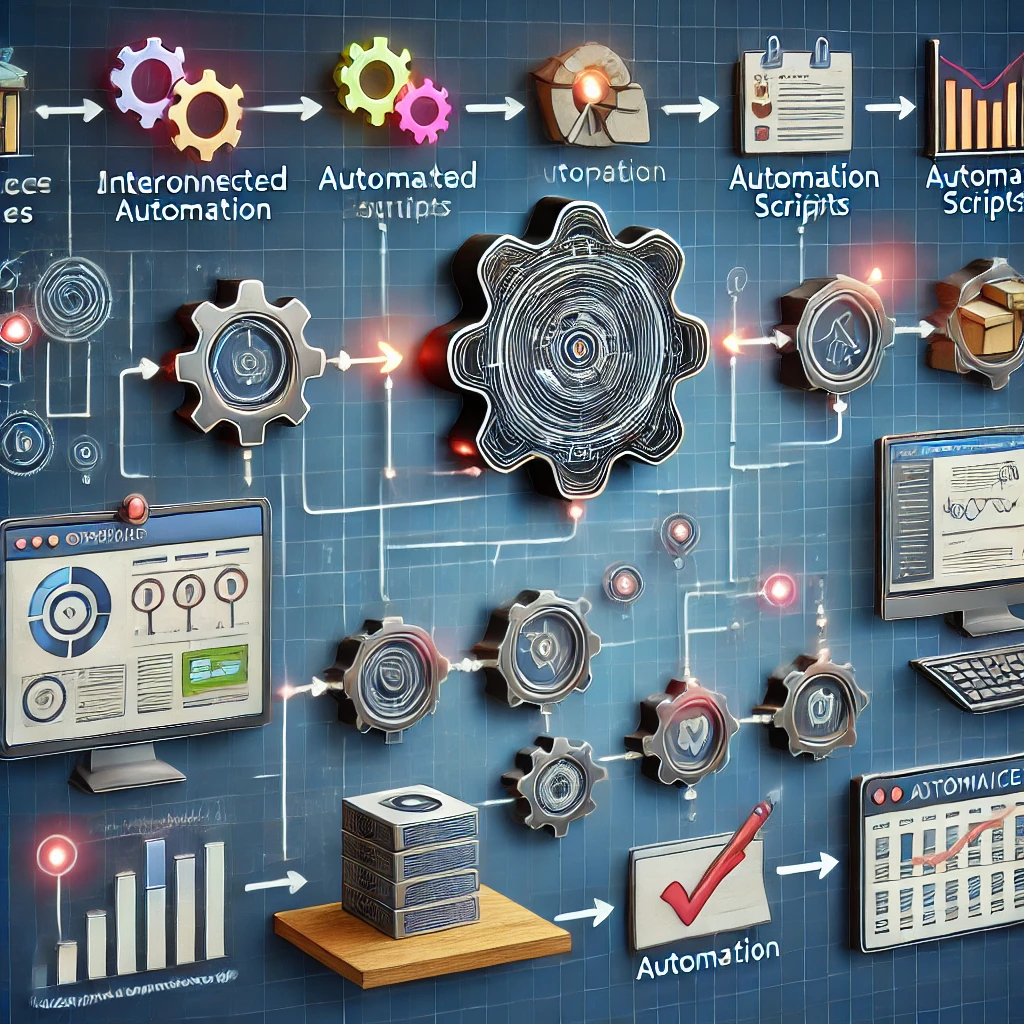Advanced Workflow Automation in Syncloop APIs

Syncloop, a powerful API development platform, provides advanced tools to automate workflows effectively. In this blog, we explore how Syncloop empowers developers to create and manage automated workflows, its key features, and best practices for building robust API workflows.
Why Advanced Workflow Automation Matters
Workflow automation transforms static processes into dynamic, adaptive systems capable of:
- Improving Efficiency: Automating repetitive tasks reduces manual intervention and errors.
- Enhancing Scalability: Streamlined workflows handle increased workloads without compromising performance.
- Enabling Real-Time Operations: Event-driven workflows respond instantly to triggers, ensuring timely execution.
- Simplifying Integrations: Automated workflows seamlessly connect disparate systems and APIs.
How Syncloop Enables Advanced Workflow Automation
Syncloop provides a comprehensive framework for building, deploying, and managing automated workflows with the following features:
1. Visual Workflow Designer
Syncloop’s drag-and-drop interface allows developers to design complex workflows visually, making automation accessible and intuitive.
2. Event-Driven Architecture
Workflows can be triggered by specific events, such as API calls, data updates, or external triggers, enabling real-time automation.
3. Conditional Logic
Syncloop supports advanced conditional logic (e.g., if-else branches, loops) to handle complex decision-making within workflows.
4. Integration with Third-Party APIs
Seamlessly integrate external APIs, databases, and services into workflows for end-to-end process automation.
5. Error Handling and Recovery
Syncloop includes robust error detection, retry mechanisms, and fallback workflows to ensure resilience and reliability.
6. Real-Time Monitoring and Analytics
Track workflow performance and execution metrics to optimize and troubleshoot automated processes.
Benefits of Using Syncloop for Workflow Automation
1. Reduced Manual Effort
Automation eliminates repetitive tasks, freeing up resources for higher-value activities.
2. Enhanced Operational Speed
Real-time triggers and streamlined workflows ensure faster response times and execution.
3. Increased Accuracy
Automated workflows minimize human errors, ensuring consistent and reliable outputs.
4. Scalability
Syncloop’s infrastructure supports workflows that scale with business needs, accommodating growing data and user volumes.
5. Flexibility
Dynamic logic and integrations allow workflows to adapt to evolving requirements and systems.
Real-World Applications of Workflow Automation with Syncloop
1. E-Commerce Order Processing
Syncloop automates order workflows, from inventory checks to payment processing and shipping notifications, ensuring a seamless customer experience.
2. Customer Onboarding
For SaaS platforms, automated workflows streamline onboarding tasks such as user account creation, email notifications, and plan activation.
3. Incident Management
IT teams use Syncloop to automate incident responses, triggering alerts, logging details, and initiating recovery processes based on predefined workflows.
4. Marketing Campaigns
Syncloop workflows automate lead management, email campaigns, and performance tracking, enabling marketers to focus on strategy.
Best Practices for Advanced Workflow Automation with Syncloop
- Define Clear Objectives: Start with well-defined goals and map out the processes to be automated.
- Leverage Event Triggers: Use Syncloop’s event-driven architecture to initiate workflows based on real-time events.
- Optimize for Scalability: Design workflows that can handle increasing data volumes and user interactions without degradation.
- Implement Robust Error Handling: Use retry mechanisms and fallback workflows to manage failures gracefully.
- Integrate Seamlessly: Connect external APIs and services to create comprehensive, end-to-end workflows.
- Monitor and Optimize: Use Syncloop’s analytics tools to track performance and refine workflows over time.
Conclusion
Advanced workflow automation is essential for building efficient, scalable, and responsive applications. Syncloop simplifies this process with tools that enable developers to design, execute, and monitor workflows with ease. By leveraging features like event-driven architecture, conditional logic, and seamless integrations, Syncloop empowers teams to automate even the most complex processes.
Whether you’re managing e-commerce operations, customer onboarding, or IT incident responses, Syncloop provides the framework to drive efficiency and innovation. Embrace Syncloop to unlock the full potential of automated workflows and transform your API-driven solutions.
A dynamic representation of an automated API workflow, showcasing event triggers, conditional logic, and seamless integrations powered by Syncloop.
Back to Blogs